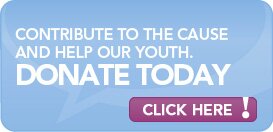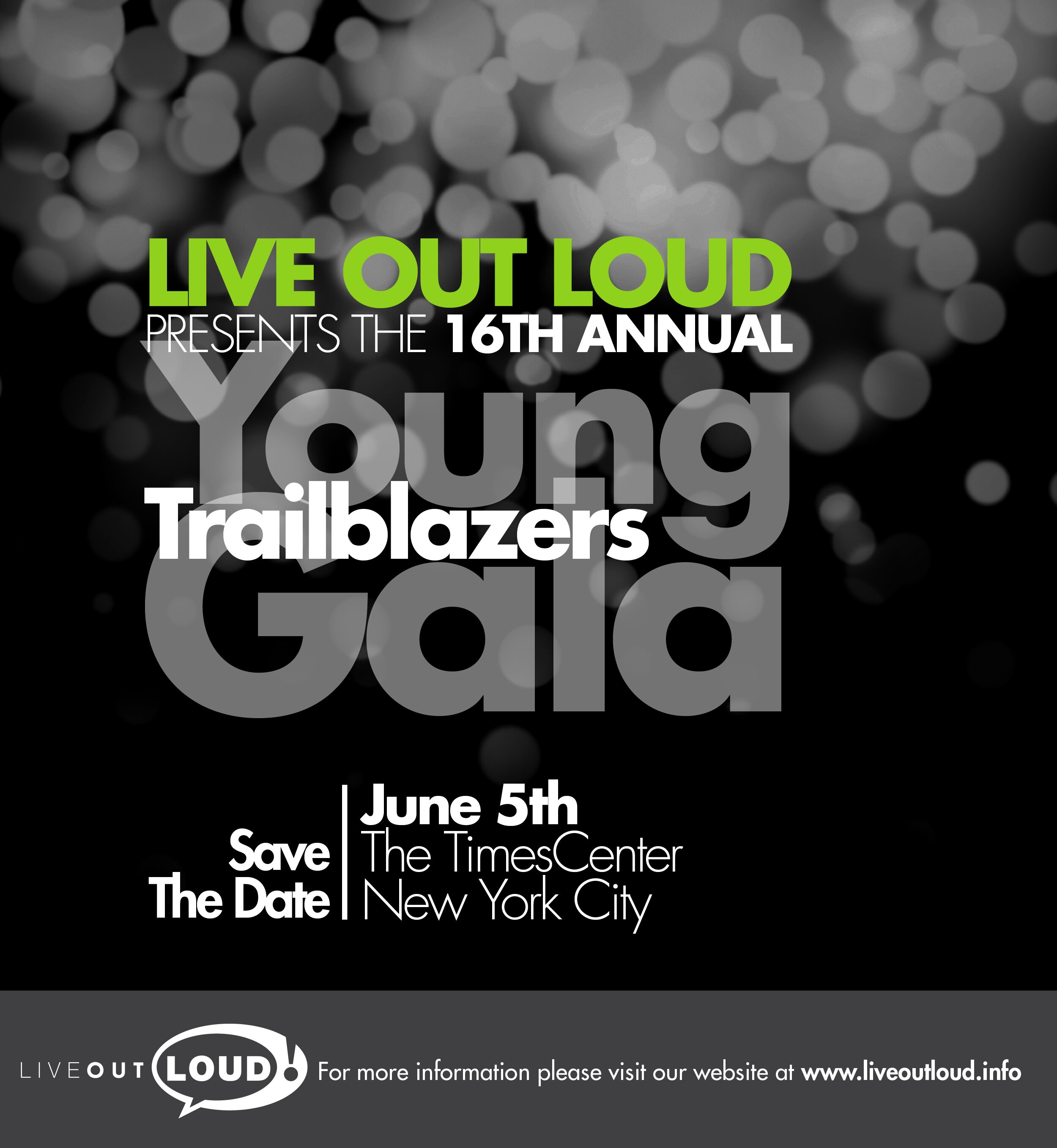October is LGBT History Month – a time to celebrate, learn, and teach the LGBT community’s rich history.
To help move the community to action during this important time, Live Out Loud has gathered resources to help teachers and Gay-Straight Alliance (GSA) advisors bring LGBT history into the classroom. We’ve also highlighted trailblazers from LGBT history who are sure to inspire your students.
LGBT history is an integral part of Live Out Loud’s mission to connect LGBTQ youth with role models. As a community, we must learn from those who came before us in order to understand what is possible and build on our successes.
We hope these resources inspire fruitful discussions and help your GSA take action. Email us at [email protected] to let us know what you’ve been up to!
RESOURCES
- Use Live Out Loud’s Lesson Plans with your GSA to connect LGBTQ youth to our shared history. Click here to download our lesson plans.
- LGBTHistoryMonth.com from Equality Forum presents 31 icons for every day of October. GSA Network has excellent suggestions for using this resource activate your school and celebrate LGBT History.
- The Huffington Post’s LGBT History op-eds and articles are sure to spark conversation in your GSA
- Download Quist on iOS or Android for important events that took place on this day in LGBT history.
- The LGBT Community Center National History Archive contains news articles, photos, and other media giving a snapshot of LGBT life from as early as 1920
- Wikipedia’s “Timeline of LGBT history” lists important international events from pre-history all the way to the present day.
ROLE MODELS
 Senator Tammy Baldwin made political waves when she became the first female senator from the state of Wisconsin as well as the first out lesbian in the U.S. Senate. Elected in 2012, Baldwin has been a strong advocate for women as well as LGBTQ people.
Senator Tammy Baldwin made political waves when she became the first female senator from the state of Wisconsin as well as the first out lesbian in the U.S. Senate. Elected in 2012, Baldwin has been a strong advocate for women as well as LGBTQ people.
“I didn’t run to make history. I ran to make a difference.”
 Jason Collins is an American professional basketball player who made headlines in 2013 when he publicly came out as gay. He became the first active male professional athlete to be open about his sexuality. Most recently, Collins played for the Washington Wizards and was one of the first inductees into the National Gay & Lesbian Sports Hall of Fame.
Jason Collins is an American professional basketball player who made headlines in 2013 when he publicly came out as gay. He became the first active male professional athlete to be open about his sexuality. Most recently, Collins played for the Washington Wizards and was one of the first inductees into the National Gay & Lesbian Sports Hall of Fame.
“The most you can do is stand up for what you believe in. I’m much happier since coming out to my friends and family. Being genuine and honest makes me happy.”
 Laverne Cox made history when she became the first African American transgender woman to appear on an American reality television program. She has also made history as the first openly transgender person nominated for an Emmy Award, and the first transgender person on the cover of Time magazine. Cox currently appears on Netflix’s smash-hit Orange Is the New Black playing Sophia, a trans identifying woman. In addition to acting, Cox is an outspoken transgender activist who advocates for greater inclusion of transgender people in the lesbian, gay, and bisexual civil rights movement.
Laverne Cox made history when she became the first African American transgender woman to appear on an American reality television program. She has also made history as the first openly transgender person nominated for an Emmy Award, and the first transgender person on the cover of Time magazine. Cox currently appears on Netflix’s smash-hit Orange Is the New Black playing Sophia, a trans identifying woman. In addition to acting, Cox is an outspoken transgender activist who advocates for greater inclusion of transgender people in the lesbian, gay, and bisexual civil rights movement.
“I have struggled and continue to struggle to not only have dignity and to carve out a place in the world for myself but to treat myself as if my life matters. My life matters. Transgender lives matter.”
 Born in New York City to West Indian parents, Audre Lorde was an outspoken activist from a young age. As a young poet, her first poem appeared in Seventeen magazine while she was still in high school. As a black lesbian, many of Lorde’s poems included insight into both of her identities and how they often crossed paths.
Born in New York City to West Indian parents, Audre Lorde was an outspoken activist from a young age. As a young poet, her first poem appeared in Seventeen magazine while she was still in high school. As a black lesbian, many of Lorde’s poems included insight into both of her identities and how they often crossed paths.
“In our work and in our living, we must recognize that difference is a reason for celebration and growth, rather than a reason for destruction.”
 Many argue that Harvey Milk is the forefather of the modern day LGBTQ rights movement. Milk was one of the first openly gay elected officials in the United States. As a member of the San Francisco Board of Supervisors, Milk fought for LGBTQ representation in the city and passed several gay ordinances protecting LGBTQ identifying individuals.
Many argue that Harvey Milk is the forefather of the modern day LGBTQ rights movement. Milk was one of the first openly gay elected officials in the United States. As a member of the San Francisco Board of Supervisors, Milk fought for LGBTQ representation in the city and passed several gay ordinances protecting LGBTQ identifying individuals.
“All young people, regardless of sexual orientation or identity, deserve a safe and supportive environment in which to achieve their full potential.”
 Sylvia Rivera was a transgender rights activist and a veteran of the Stonewall uprising in 1969. As the LGBT rights movement began to focus on the gay community, Rivera fought for those who became marginalized, such as the transgender community, low-income people, and people of color. The Sylvia Rivera Law Project (SRLP) was named after her and carries on her legacy by fighting discrimination against people of color and low-income people who are transgender, intersex, or gender non-conforming.
Sylvia Rivera was a transgender rights activist and a veteran of the Stonewall uprising in 1969. As the LGBT rights movement began to focus on the gay community, Rivera fought for those who became marginalized, such as the transgender community, low-income people, and people of color. The Sylvia Rivera Law Project (SRLP) was named after her and carries on her legacy by fighting discrimination against people of color and low-income people who are transgender, intersex, or gender non-conforming.
 Bayard Rustin was an openly gay activist during the very homophobic landscape of the 1950’s and 60’s. Inspired by Ghandi, Rustin advocated for nonviolent and peaceful protest and served as Martin Luther King Jr’s advisor and mentor. Rustin was key in organizing the 1963 March on Washington.
Bayard Rustin was an openly gay activist during the very homophobic landscape of the 1950’s and 60’s. Inspired by Ghandi, Rustin advocated for nonviolent and peaceful protest and served as Martin Luther King Jr’s advisor and mentor. Rustin was key in organizing the 1963 March on Washington.
“The proof that one truly believes is in action.”
 Many consider Edith Windsor a hero. Windsor was a plaintiff in the Supreme Court case against the Defense of Marriage Act (DOMA), a federal law that legally defined marriage as a union between a man and a woman. When her partner of 42 years died in 2009, Windsor was left with large estate taxes because the federal government did not recognize their marriage. A heterosexual couple would not have been treated similarly. In June 2013, the United States Supreme Court overturned DOMA and, for the first time, recognized same-sex married couples on a federal level.
Many consider Edith Windsor a hero. Windsor was a plaintiff in the Supreme Court case against the Defense of Marriage Act (DOMA), a federal law that legally defined marriage as a union between a man and a woman. When her partner of 42 years died in 2009, Windsor was left with large estate taxes because the federal government did not recognize their marriage. A heterosexual couple would not have been treated similarly. In June 2013, the United States Supreme Court overturned DOMA and, for the first time, recognized same-sex married couples on a federal level.
“Don’t postpone joy.”






 Jason Collins is an American professional basketball player who made headlines in 2013 when he publicly came out as gay. He became the first active male professional athlete to be open about his sexuality. Most recently, Collins played for the Washington Wizards and was one of the first inductees into the National Gay & Lesbian Sports Hall of Fame.
Jason Collins is an American professional basketball player who made headlines in 2013 when he publicly came out as gay. He became the first active male professional athlete to be open about his sexuality. Most recently, Collins played for the Washington Wizards and was one of the first inductees into the National Gay & Lesbian Sports Hall of Fame. Laverne Cox made history when she became the first African American transgender woman to appear on an American reality television program. She has also made history as the first openly transgender person nominated for an Emmy Award, and the first transgender person on the cover of Time magazine. Cox currently appears on Netflix’s smash-hit Orange Is the New Black playing Sophia, a trans identifying woman. In addition to acting, Cox is an outspoken transgender activist who advocates for greater inclusion of transgender people in the lesbian, gay, and bisexual civil rights movement.
Laverne Cox made history when she became the first African American transgender woman to appear on an American reality television program. She has also made history as the first openly transgender person nominated for an Emmy Award, and the first transgender person on the cover of Time magazine. Cox currently appears on Netflix’s smash-hit Orange Is the New Black playing Sophia, a trans identifying woman. In addition to acting, Cox is an outspoken transgender activist who advocates for greater inclusion of transgender people in the lesbian, gay, and bisexual civil rights movement.
 Many argue that Harvey Milk is the forefather of the modern day LGBTQ rights movement. Milk was one of the first openly gay elected officials in the United States. As a member of the San Francisco Board of Supervisors, Milk fought for LGBTQ representation in the city and passed several gay ordinances protecting LGBTQ identifying individuals.
Many argue that Harvey Milk is the forefather of the modern day LGBTQ rights movement. Milk was one of the first openly gay elected officials in the United States. As a member of the San Francisco Board of Supervisors, Milk fought for LGBTQ representation in the city and passed several gay ordinances protecting LGBTQ identifying individuals.
 Bayard Rustin was an openly gay activist during the very homophobic landscape of the 1950’s and 60’s. Inspired by Ghandi, Rustin advocated for nonviolent and peaceful protest and served as Martin Luther King Jr’s advisor and mentor. Rustin was key in organizing the 1963 March on Washington.
Bayard Rustin was an openly gay activist during the very homophobic landscape of the 1950’s and 60’s. Inspired by Ghandi, Rustin advocated for nonviolent and peaceful protest and served as Martin Luther King Jr’s advisor and mentor. Rustin was key in organizing the 1963 March on Washington. Many consider Edith Windsor a hero. Windsor was a plaintiff in the Supreme Court case against the Defense of Marriage Act (DOMA), a federal law that legally defined marriage as a union between a man and a woman. When her partner of 42 years died in 2009, Windsor was left with large estate taxes because the federal government did not recognize their marriage. A heterosexual couple would not have been treated similarly. In June 2013, the United States Supreme Court overturned DOMA and, for the first time, recognized same-sex married couples on a federal level.
Many consider Edith Windsor a hero. Windsor was a plaintiff in the Supreme Court case against the Defense of Marriage Act (DOMA), a federal law that legally defined marriage as a union between a man and a woman. When her partner of 42 years died in 2009, Windsor was left with large estate taxes because the federal government did not recognize their marriage. A heterosexual couple would not have been treated similarly. In June 2013, the United States Supreme Court overturned DOMA and, for the first time, recognized same-sex married couples on a federal level.

